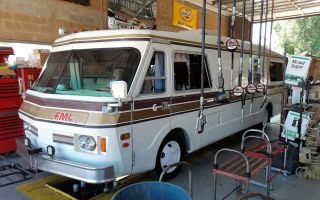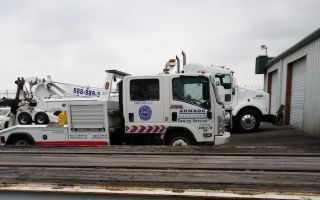How to Get Your Car Towed After an Engine Overheat: A Step-by-Step Guide
- Understanding Engine Overheating and Its Causes
- First Steps to Take After Your Engine Overheats
- How to Choose the Right Towing Service for Your Overheated Car
- Real-Life Experience with Car Breakdowns and Overheating
- Preventing Engine Overheating in the Future
1. Understanding Engine Overheating and Its Causes
Engine overheating is a common issue that many car owners face at some point. This typically happens when your engine gets too hot, exceeding the temperature at which it can function properly. If left unchecked, an overheated engine can cause severe damage to vital engine components, leading to expensive repairs.
Common causes of engine overheating include low coolant levels, a broken thermostat, a malfunctioning water pump, or a clogged radiator. These issues can cause the engine to heat up faster than the cooling system can handle. It's essential to recognize the signs early to avoid a full engine breakdown, which might require the assistance of a professional towing service to transport your car to the nearest repair shop.
2. First Steps to Take After Your Engine Overheats
If you notice that your engine is overheating, the first thing you should do is stay calm and pull over to a safe location. Here’s what to do:
- Turn off the air conditioning: The AC can put extra strain on your engine, so turning it off can help reduce the heat.
- Turn on the heater: It may sound counterintuitive, but the heater helps draw heat away from the engine and into the cabin, offering temporary relief.
- Let the engine cool down: Wait for the engine to cool for at least 20 to 30 minutes before attempting to check under the hood. Never open the radiator cap while the engine is hot, as hot steam can cause burns.
- Check coolant levels: If you're familiar with your vehicle's cooling system, check the coolant levels to see if adding more fluid helps.
If the engine continues to overheat or if you are unable to resolve the issue, you may need to call for a tow truck to transport your vehicle to a nearby mechanic.
3. How to Choose the Right Towing Service for Your Overheated Car
When it comes to towing your car after an engine overheating, it’s important to select a towing service that is capable of handling the situation properly. Here are some tips for choosing the right service:
- Check for experience with overheating vehicles: Not all towing companies have experience dealing with cars that have overheated. Look for services that specialize in breakdowns and understand how to safely tow vehicles that may have engine damage.
- Confirm availability and response time: Choose a towing service that offers 24/7 availability, especially in case of emergencies. Quick response time is crucial when dealing with engine overheating to avoid further damage.
- Ensure the use of flatbed towing: For cars with engine issues, it’s best to use flatbed towing to avoid causing further strain on the vehicle’s drivetrain.
- Look for proper insurance: Make sure the towing company has insurance coverage to protect your vehicle while it's being transported.
By selecting a professional and reliable towing service, you can ensure your car is safely transported to a mechanic for repairs after an engine overheating incident.
4. Real-Life Experience with Car Breakdowns and Overheating
Take the example of Lisa, who was driving her SUV on a long road trip when the engine started to overheat. “I noticed the temperature gauge was rising quickly, and the engine started making a strange sound,” Lisa recalls. “I immediately pulled over, turned off the AC, and started the heater, but the engine still wouldn’t cool down.”
Lisa called a roadside assistance service that specialized in car breakdowns and overheating issues. “They arrived within 30 minutes and confirmed that the radiator had a clog, which was causing the engine to overheat. They towed my SUV to a nearby mechanic, and the issue was resolved the same day. It was such a relief to know that help was on the way so quickly,” Lisa shares.
This real-life example highlights the importance of acting quickly and knowing how to respond to an overheating engine. Having access to a reliable towing service can make all the difference in getting your vehicle back on the road without further complications.
5. Preventing Engine Overheating in the Future
While breakdowns and overheating can happen unexpectedly, there are several steps you can take to prevent engine overheating in the future:
- Regularly check coolant levels: Ensure that your vehicle has enough coolant, and replace old coolant as recommended by your manufacturer.
- Maintain the radiator and water pump: Regularly check the radiator for any blockages or leaks, and ensure the water pump is working efficiently to circulate coolant through the engine.
- Replace damaged hoses: Inspect the hoses connected to the cooling system for wear or damage and replace them as needed to avoid leaks and overheating.
- Service your vehicle regularly: Follow a regular maintenance schedule to keep your engine and cooling system in optimal condition.
By staying on top of routine maintenance and addressing any issues promptly, you can reduce the chances of experiencing an engine overheating situation during your travels.




























